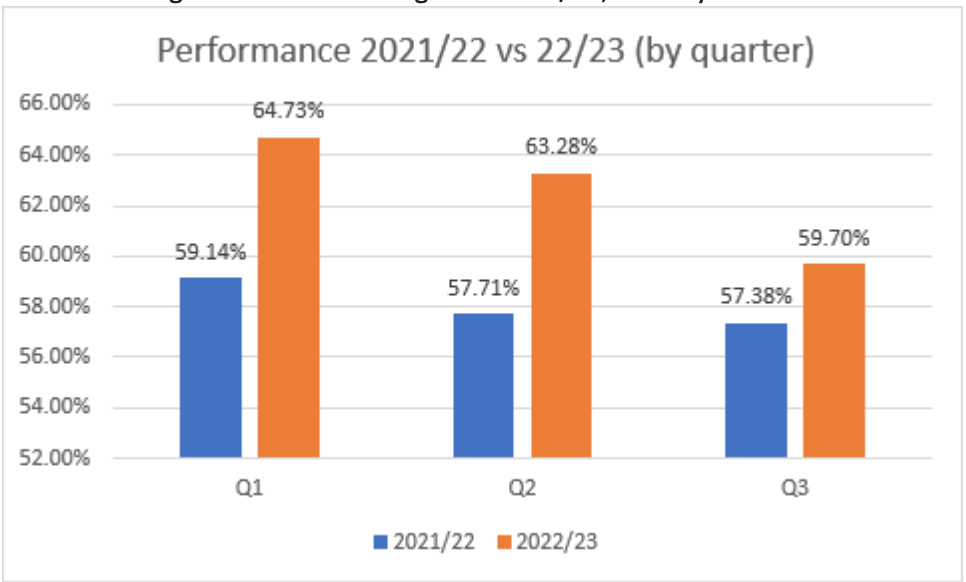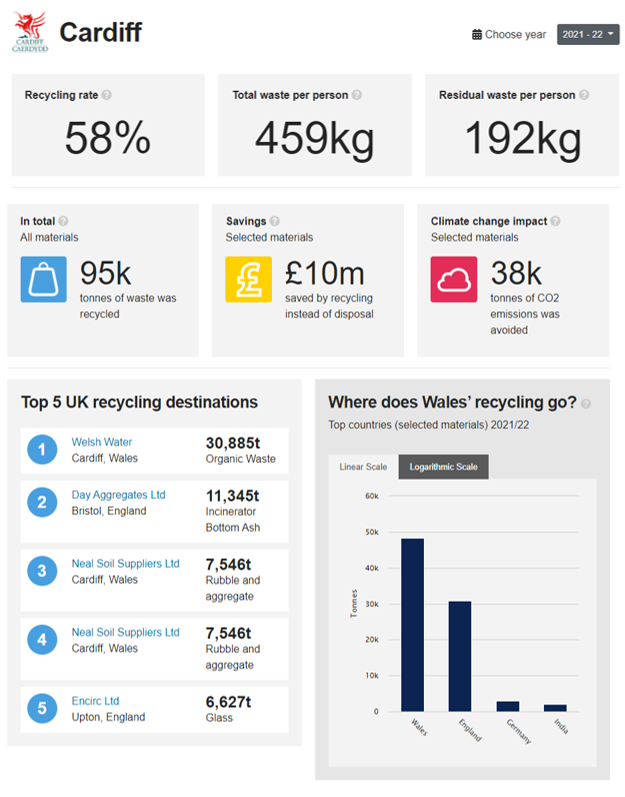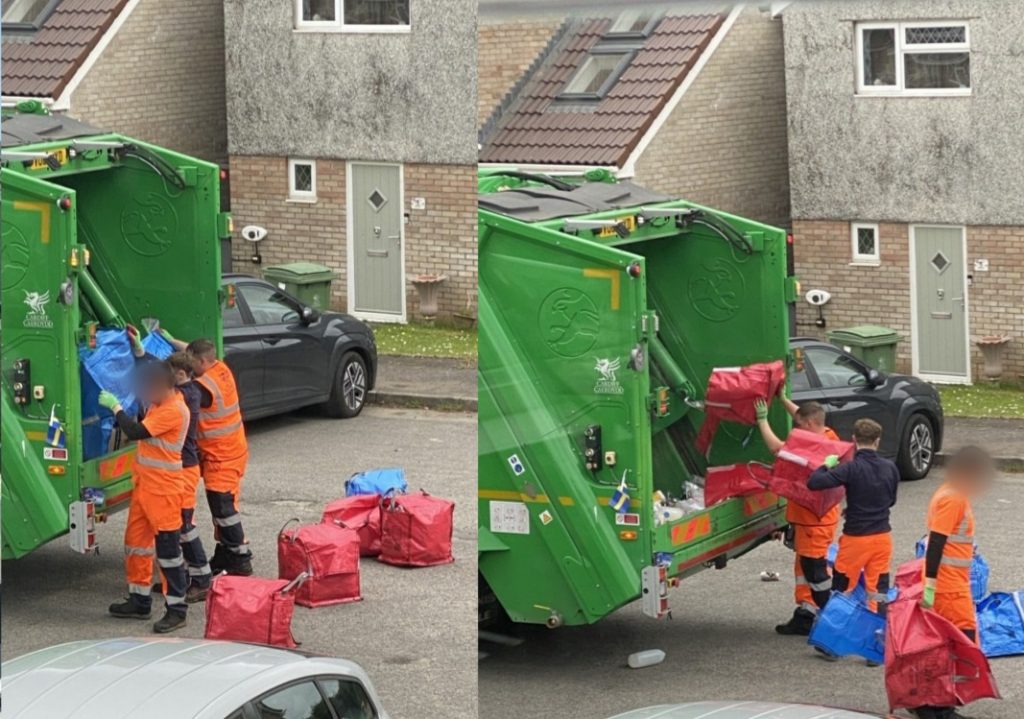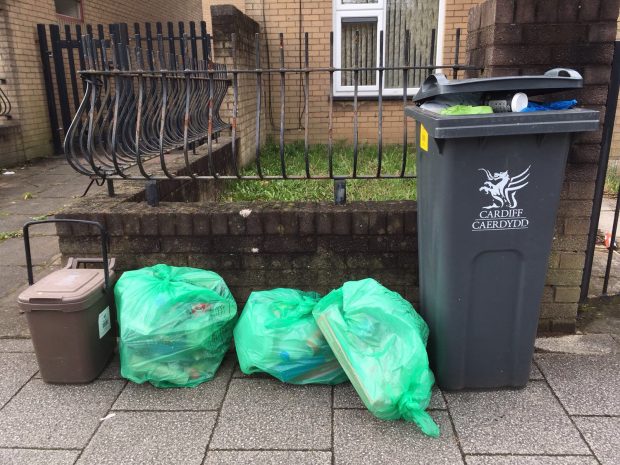The Welsh capital is getting better – but it’s still not hitting its target
THE AMOUNT of waste being sent to be recycled in Cardiff has increased – but as of 2022, Wales’ capital remained the worst for recycling in the country, for the second year in a row.
In 2021/2022, Cardiff recycled 58.2% of waste collected, according to data released by the Welsh Government. That’s an increase of 2% since last year when Cardiff’s rates were at an all-time low, and had been on a steady decline since 2018.
This increase in recycling rates comes after Cardiff Council launched its ‘Cleaner and Greener’ Towards Zero Waste Strategy in September 2022, which aims to increase the city’s recycling rate to 70% by 2025.
The recycling rate is the percentage of local authority municipal waste that is sent to be reused, recycled or composted.
Wales, as a whole, is frequently a stand-out performer when it comes to recycling rates as nearly two thirds of all the municipal waste produced across Wales is now recycled (65.2%). This has exceeded the statutory target of 64% set by the Welsh Government.
For every tonne of waste that is missed from the 64% target, Cardiff Council may have to pay a £200 fine.
However, Cardiff was not the only Welsh local authority which did not meet this target; Flintshire, Anglesey, Carmarthenshire, Caerphilly and Torfaen also recorded recycling rates that were below 64%.
According to WasteDataFlow, Cardiff’s recycling rate, so far, for 2022/2023 has steadily increased, and now averages 62.57% over the three quarters of the year, (as seen in the chart provided by Cardiff Council) meaning Torfaen’s recycling rate is now below Cardiff’s.

A spokesperson for Cardiff Council said: “Although Cardiff is not at the top of the Welsh performance list, as a big city it is very different to most other authorities in Wales and when compared to the big cities across the UK it is the best performing for recycling and composting.”
In comparison to other cities across the UK, Newport was found to be the best city in the UK for recycling, followed by Chester and in third place Bangor. Cardiff came in at sixth place.
“Cardiff’s challenges are different, and are taking a bit longer to address, but good progress is being made,” added the spokesperson. “Recent data suggests that the recycling and composting rate for the city is nearly 64% and is now much closer to the current Welsh Government target level.”
In 2022, 95,000 tonnes of waste was recycled – that’s the equivalent of 8,636 double decker buses.

As a response to being the lowest performing council in Wales, in January 2022, Cardiff Council launched a segregated recycling scheme which was brought in to trial across Llandaff, Danescourt, Radyr, Pentwyn and Trowbridge.
Residents were asked to segregate their recycling into separate reusable sacks for paper, metals/plastics and glass.
Feedback from the nine-month pilot scheme saw that 37% of respondents were satisfied, but almost 55% of respondents were either ‘Very Dissatisfied’ or ‘Fairly Dissatisfied’ with the separate recycling pilot.
The main concerns were about the quality of the bags used to separate the recycling, the storage issues that came with the sacks as well as criticism of the trucks used to collect the waste.
In November 2022, The Cardiffian found that bin collectors in Danescourt had been throwing the residents’ segregated recycling into one mixed truck.
Residents were said to be furious after catching the bin collectors on video, throwing the different coloured sacks into the back of one van.
Chris Tonge, from Danescourt, told The Cardiffian in November: “There’s me battling with my children trying to get them to separate all this recycling, and then I see the rubbish man just grabbing all three bags and shoving it in the same box.”
This was a common response in the feedback to the pilot scheme as well, with one responder saying: “Until the council have the correct vehicles for collection, this is a pointless exercise,” and another saying: “What is the point of a separate another thing when I just kept it together in the truck.”
The council later admitted that this was the case and reassures the residents that “there is a system in place” and that it “doesn’t actually affect what happens at the end of the day”.
Currently, recyclables are being taken to a Materials Recycling Centre on Lamby Way where the rubbish is then re-sorted into the correct groupings.
This pilot scheme is planned to be implemented for all properties in Cardiff over the next two years.

Cardiff Council has also approved plans to trial changing non-recyclable waste collections from once every two weeks to once every three weeks as part of its Recycling Strategy 2022-25.
No date has been set to implement this change, however many councillors have slammed the idea.
Leader of the opposition at Cardiff Council, Coun Adrian Robson, questioned the council’s idea of trialling fewer black bin bag collections, saying he had “deep concerns” about it. The Conservative councillor added: “I just think it will cause confusion for a lot of people, particularly those who are elderly or maybe infirm and who are used to that routine of fortnightly.”
Liberal Democrat councillor Joe Carter has also voiced his concerns.
“We are very concerned about the proposals to reduce black bin collections to every three weeks and roll out the sacks. There is little support for less collections,” said Coun Carter.
“The consultation showed that most people felt their bins were full after only two weeks and they opposed the roll-out of the sacks. The sacks have made recycling more difficult, lead to more litter and have required expensive new vehicles. We need to increase recycling but not if it causes more litter and flytipping.”
The spokesperson for Cardiff Council added: “Every resident in Cardiff can make a difference to the city’s recycling and composting rate by recycling as much of their waste as possible and using the services provided.
“We would like to thank all residents in Cardiff that are recycling their waste. Together, we can make a difference and increase the city’s recycling rate, so we can meet the challenging recycling targets that have been set by Welsh Government.”



